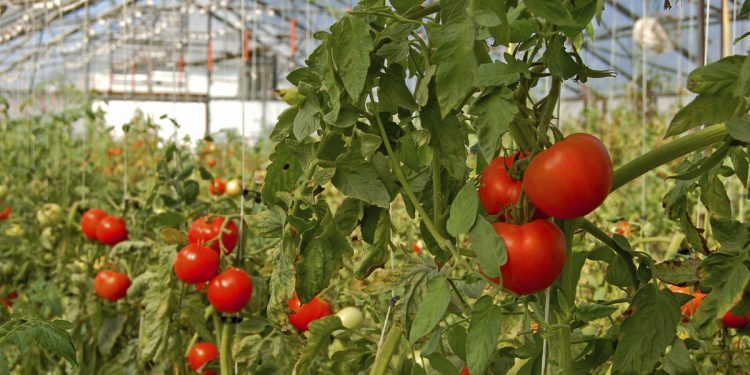As climate change and increasing soil salinity pose growing challenges to global agriculture, the need for resilient crop varieties has never been more urgent. For entrepreneurs and investors in the agricultural sector, particularly those focused on sustainable farming practices, a recent study offers promising insights into developing crops that can thrive under these harsh conditions.
The research, conducted by a team of scientists led by Assistant Professor Magda Julkowska from the Boyce Thompson Institute, focuses on the genetic potential of wild tomatoes, specifically Solanum pimpinellifolium. This species, a close relative of the cultivated tomato, has adapted to survive in diverse and often inhospitable environments. These tiny, cherry-sized fruits, though unassuming in appearance, are a genetic treasure trove, particularly when it comes to stress resistance.
The study explored how these wild tomatoes respond to varying levels of salt stress, using high-throughput phenotyping techniques in both greenhouse and field settings. The findings revealed extensive variations in how the plants coped with salty conditions, offering valuable insights for future crop development.
One of the most significant discoveries of the study is the role of a plant’s overall vigor in its ability to withstand salt stress. Plants that grew more robustly were better equipped to handle high salinity levels, suggesting that breeding strategies focused on enhancing plant vigor could indirectly improve salt tolerance.
This research holds substantial potential for agricultural innovation. By harnessing the genetic traits of wild tomatoes, breeders can develop new varieties of cultivated tomatoes that are more resilient to environmental stressors. This not only addresses the immediate challenge of soil salinity but also contributes to the broader goal of sustainable agriculture by reducing the need for chemical interventions and improving crop reliability.
For investors, this presents a strategic opportunity to support the development of next-generation crop varieties that are both environmentally sustainable and economically viable. The ongoing quest for resilient agricultural solutions is increasingly important as global food security becomes a central concern in the face of climate change.
As the agricultural industry continues to evolve, the insights gained from this research underscore the importance of looking to nature for solutions. Wild relatives of common crops, like Solanum pimpinellifolium, offer a wealth of genetic diversity that can be tapped into to address some of the most pressing challenges in agriculture today.










